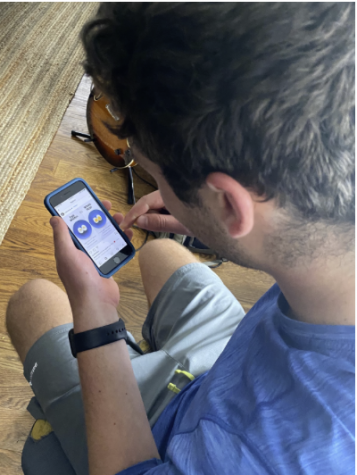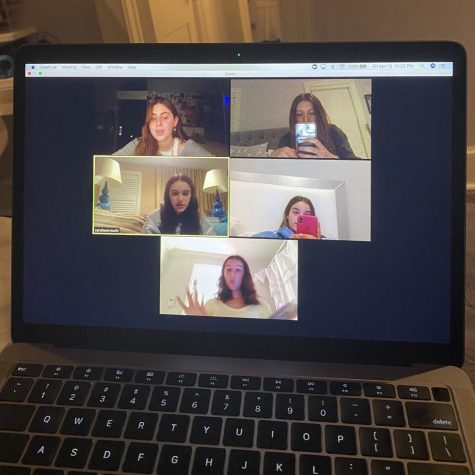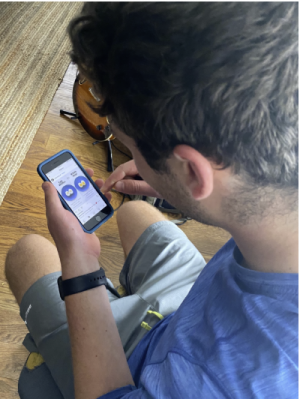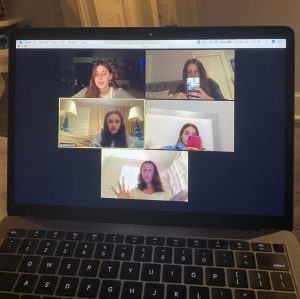Quarantine turns people into screen addicts
The coronavirus leads to an increase in screen time.
Quarantine has started getting to my head. I actually find myself whispering to myself as if I’m expecting a response back.
In order to prevent this psychosis, I resort to going on my phone.
During the day, I sit at my desk for about five hours straight doing schoolwork. After what feels like years of completing my assignments, I go straight to my phone and tv. I often find myself getting lost in the social media vortex for longer than I did prior to this pandemic, and I find myself easily staying up until three in the morning.
Overuse of screen time is problematic for various reasons. It can easily become a distraction as well as a cause for people to slack with their work, resulting in lower grades. If your phone is right next to you as you’re doing work and a notification goes off, many have the urge to instantly check their phone to see who it is.
Then that leads to checking all notifications and social media, which takes you into a whole new world. Using technology in excess also prevents you from falling asleep easily. Many go on their phones or watch tv right before bed, but this habit will actually keep you from sleeping.
Screens emit blue light, which restrains the amount of melatonin that your body produces. Melatonin is the hormone which controls your sleep, so reducing the amount that your body creates will result in problems with your sleep.
In order to prevent screen time from taking over your life, it’s important that you be mindful of how often you’re using your devices. Setting a schedule or shutting of your devices well before you go to bed will prevent the blue light from keeping you awake. Although it might seem really really hard to go without your devices for an hour or so, it’s necessary in order to stay productive and maintain a balanced life.




























































